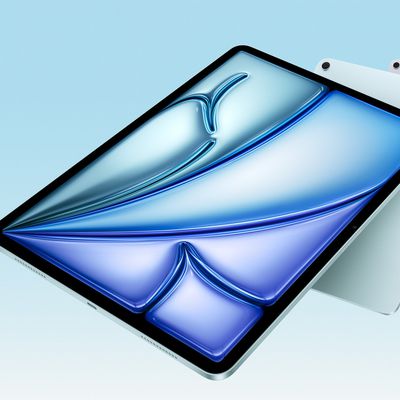U.S. Justice Department 'Leaning Against' Approving T-Mobile/Sprint Merger
The United States Justice Department is "leaning against" approving the merger between T-Mobile and Sprint, reports Bloomberg.
The merger might not be approved because the two companies "don't go far enough" to resolve antitrust concerns raised by the U.S. government.

Bloomberg's report comes shortly after United States Federal Communications Chairman Ajit Pai said that he would recommend approval of the merger between Sprint and T-Mobile.
T-Mobile and Sprint have implemented changes to their merger to allay concerns, including the sale of Boost Mobile, a three-year buildout of a 5G network, and a pledge not to raise prices while the network is being built, but these steps may not be enough to earn approval.
Back in April, there were reports suggesting the DoJ had told Sprint and T-Mobile that the merger would not be approved as it was originally structured, which prompted the plans to sell Boost Mobile.
Sprint and T-Mobile first announced a merger agreement in April 2018, but the completion of the merger requires the government to approve the deal. A merger between Sprint and T-Mobile would combine two of the four major carriers in the U.S., and it would use the T-Mobile name.
The two companies would have close to 100 million customers, putting it second only to Verizon. The U.S. DoJ is concerned the deal would be a major threat to competition.
Sprint and T-Mobile planned to have the merger completed no later than the first half of 2019, but that date was pushed back to late July earlier this year.
Popular Stories
Apple today announced a "special Apple Experience" in New York, London, and Shanghai, taking place on March 4, 2026 at 9:00am ET.
Apple invited select members of the media to the event in three major cities around the world. It is simply described as a "special Apple Experience," and there is no further information about what it may entail. The invitation features a 3D Apple logo design...
Apple on Monday invited selected journalists and content creators to a "special Apple Experience" on Wednesday, March 4 in New York, London, and Shanghai.
At an Apple Experience, attendees are typically given the opportunity to try out Apple's latest hardware or software. Following the launch of Apple Creator Studio last month, for example, some content creators attended an Apple Experience...
Apple plans to release an iPhone 17e and an iPad Air with an M4 chip "in the coming weeks," according to the latest word from Bloomberg's Mark Gurman.
"Apple retail employees say that inventory of the iPhone 16e has basically dried out and the iPad Air is seeing shortages as well," said Gurman. "I've been expecting new versions of both (iPhone 17e and M4 iPad Air) in the coming weeks."...
Apple's upcoming iPhone 18 Pro and iPhone 18 Pro Max models "won't be a big update," according to Bloomberg's Mark Gurman.
In the latest edition of his "Power On" newsletter, Gurman said that the iPhone 18 Pro models will "represent minor tweaks from last year's iPhone 17 Pro and 17 Pro Max." He compared the upgrade to Apple's past practice of appending the letter "S" to its more minor...
Apple on Monday invited selected journalists and content creators to a "special Apple Experience" on Wednesday, March 4 in New York, London, and Shanghai. And now, rumors are surfacing about Apple's broader plans for that week.
Daring Fireball's John Gruber today guessed that Apple will announce new products on a day-by-day basis from Monday, March 2 through Wednesday, March 4:What strikes...



















